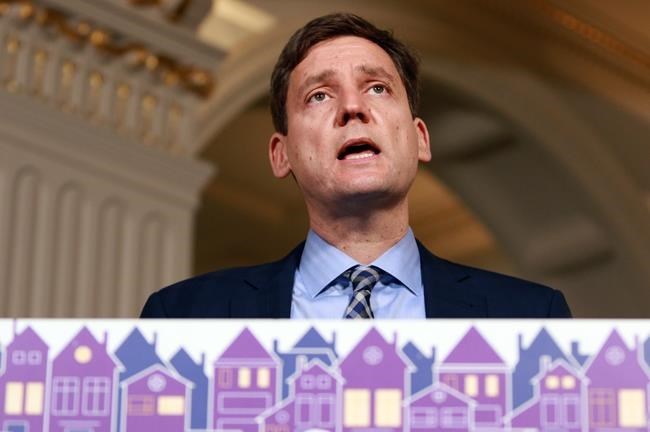I assume he can read the Judge's mind ...

B.C. premier says spat over Surrey police force 'no longer up for discussion'
VICTORIA — British Columbia Premier David Eby says a court challenge by the City of Surrey over being forced to continue the transition to a municipal police service "will not be successful."
Eby said Tuesday that Surrey Mayor Brenda Locke "fought a good fight" in attempting to move the RCMP back to its police force of jurisdiction, but the decision to move ahead with a municipal force has been made by his government and is no longer up for discussion.
Surrey filed a petition to the court this month, asking for a judicial review of the government's directive earlier this year to continue its transition to a local police force, claiming the province doesn't have the authority to force the change without enough funding to support it.
Solicitor General Mike Farnworth introduced changes to the Police Act on Monday that he said would provide "finality" for the residents of Surrey on the future of police services in the city.
The legislation, if passed, would ensure that once a transition plan is approved by the provincial government, the municipality has the legal obligation to complete the transaction.
It would also allow the minister to determine next steps in the process if the municipality was unable to produce a transition plan or if it failed to implement the plan that the government had approved.
At an unrelated event in Victoria, Eby said the municipality's legal challenge is a waste of taxpayers' money and the two sides need to sit down and figure out a way forward.
"I think there is a moment here for us to regroup with the city, to reset. It is very clear that the city will not be successful in any legal challenge," he said.
The city has said it would face a shortfall of $314 million over a 10-year period if it was forced to complete the transition to the Surrey Police Service, while the province has offered $150 million to aid the shift.
Eby said it's important that Locke raised concerns about implementation costs and the province will be "a good partner to address those issues."
"But whether or not we're moving forward to a municipal force is no longer up for discussion," he said.
"We are moving forward to a municipal force in Surrey and for everybody's benefit we need to just get on with that work. And I look forward to working with the mayor on that."
The official Opposition said the government's approach to the conflict "has plunged the situation into chaos."
BC United public safety critic Mike Morris said in a statement that a lack of transparency from the New Democrats means the Opposition doesn't have the necessary information to assess whether transitioning from the RCMP to a municipal force is a sound decision.
"It's unreasonable to expect us, the Opposition, to validate the NDP’s ongoing mishandling of this issue when we lack the relevant facts, which is why we will be voting No to the legislation," he said.
VICTORIA — British Columbia Premier David Eby says a court challenge by the City of Surrey over being forced to continue the transition to a municipal police service "will not be successful.

www.timescolonist.com


